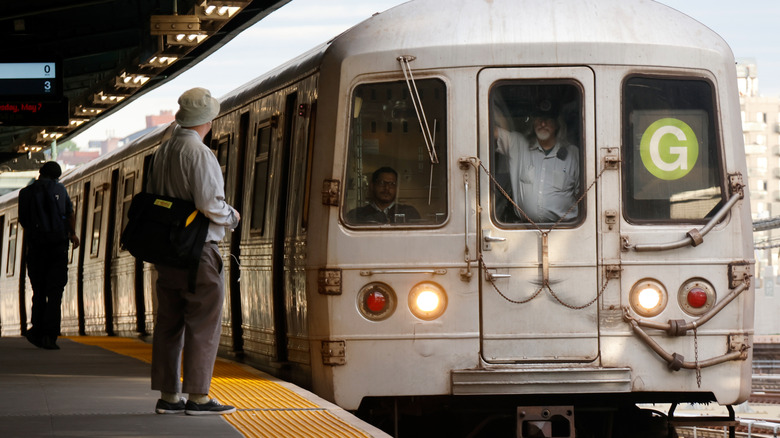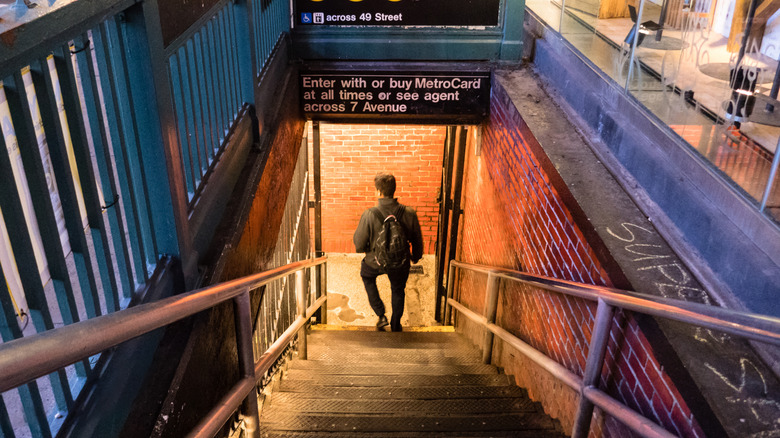The MTA Finally Changes Subway And Bus Fare Plans After Public Pushback, But You'll Still Pay More Anyway
New York's chaotic subway system may be a nightmare for tourists to navigate, but it remains an essential part of everyday life in the Big Apple. Nearly 1.2 billion people took the subway in 2024, with growths of 3% and 4.3% on weekdays and weekends, respectively. And it's not just New Yorkers who rely on public transportation — residents outside the city center rely heavily on bus and subway lines to get to and from their homes and offices. Tourists also count on buses and subways to explore America's most visited state from abroad.
When the Metropolitan Transportation Authority (MTA) initially shared that it planned to increase bus and subway fares, it was hit with a wave of public backlash, with netizens claiming the price hike neglected so-called fare beaters — riders who jump the turnstiles and ride without paying — and that the financial burden ultimately fell on paying riders.
Receiving over 1,300 comments at public comment sessions throughout the summer, the MTA made changes to its original plan. These changes were confirmed on September 30, 2025. Despite a good fight, public transportation users can still expect to pay more as early as January 2026. Base fares are increasing from $2.90 to $3, with the reduced fare increasing from $1.45 to $1.50. The express bus fare is also getting an update, going up to $7.25 from $7.00.
Metrocard phase out and other changes
The MTA is planning a list of changes scheduled to take effect in 2026, with most set to be implemented by the end of January. These changes are in line with the MTA's rollout of the OMNY tap-to-ride technology and the phase out of the MetroCard.
One of the biggest changes coming to the MTA's bus and subway network is its fare-capping system, which will become permanent in 2026 — but not without its own price increase. Commuters can take advantage of free rides on the subway and local bus lines after paying for an initial 12 within a seven-day period for a capped price of $35 — bumped up from the current $34 — from January 2026. The fare-capping system will also be extended to the MTA's express bus network, with the cap set at $67 per week. The 7-Day, 30-Day, and Express Bus Plus unlimited MetroCard passes will be retired in 2026, and instead, riders will be automatically switched to the fare-cap model.
The MTA is one of the largest transportation networks in the U.S. Over 15 million people in New York City, Long Island, New York State, and Connecticut rely on its services. MTA Chair and CEO Janno Lieber reassures riders that "the modest fare increases ... prioritize value for frequent riders and families." Whether that will be true — or, at least, feel true — in practice remains to be seen. For out-of-towners especially concerned with their public transportation budget, the cheapest way to navigate New York City may just be to combine walking with the occasional bus or subway ride.

